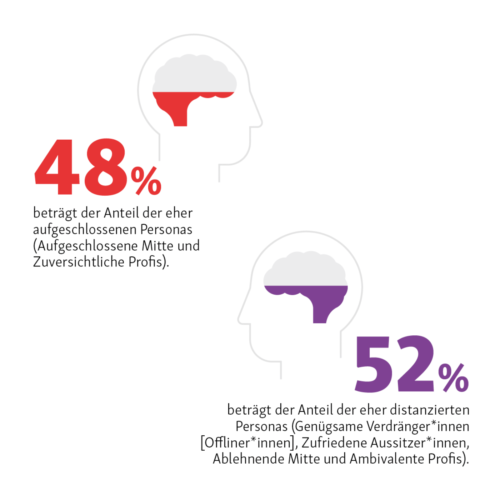eGovernment MONITOR 2024 – English version enables continued international dialogue on digital administration
The eGovernment MONITOR is a representative study that assesses the success and reach of digital transformation in administrative services for citizens in Germany, Austria, and Switzerland.
We are delighted to once again present the 2024 edition of the eGovernment MONITOR in English. The representative study by Initiative D21 e. V. and the Technical University of Munich sheds light on the status of the digital transformation of public administration from the perspective of citizens in Germany, Austria and Switzerland. Since 2010, it has served decision-makers as an important tool for measuring progress and deriving actionable improvements.
The results show: The digital transformation of public administration is progressing in many areas, but only in small steps. At the same time, there are signs of positive momentum: the use of the eID has increased noticeably, and citizens are generally open to innovations such as artificial intelligence – provided that key safeguards, such as human oversight, are maintained. Trust in the state's performance is closely tied to the quality and accessibility of digital services: Almost half of the population sees simple, efficient digital processes as a reason to (re)gain trust in state institutions.
The challenges of digital administration remain diverse but they are not insurmountable. Our eGovernment MONITOR provides politicians and administrators with a reliable tool for identifying problem areas, recognizing potential and implementing targeted improvements. A central message of this year’s study: citizens continue to believe in the value of digital government. The foundation is there – now it's time to deliver tangible progress.

This year's eGovernment MONITOR once again shows how complex the digital transformation of public administration is. We need to continue working on many key areas. However, the figures also highlight the enormous potential that digital government services offer.
Overview: Key Findings
- State performance and trust: For 48% of citizens, easily accessible and user-friendly digital services are a key factor in (re)building trust in the state.
- Key drivers of eGovernment use: A central platform, faster processing of services, and greater personalization are the main motivators for increased usage.
- Seamless digital experiences as a lever: The biggest barrier to broader adoption remains the lack of fully digital, end-to-end processes.
- Digital usage gap: 3 out of 10 citizens still prefer analog channels when dealing with the administration – more than in Austria or Switzerland (2 out of 10).
- eID gains traction: Usage has risen from 14% to 22%, showing progress but still falling short of its potential.
- Artificial intelligence in administration: The majority of citizens are open to its use – provided human decision-making remains a fundamental principle.
Contact persons
We would be happy to engage with stakeholders outside of German-speaking political and research contexts and build upon the study's findings. Please feel free to share and do not hesitate to send us any feedback on our publication.



